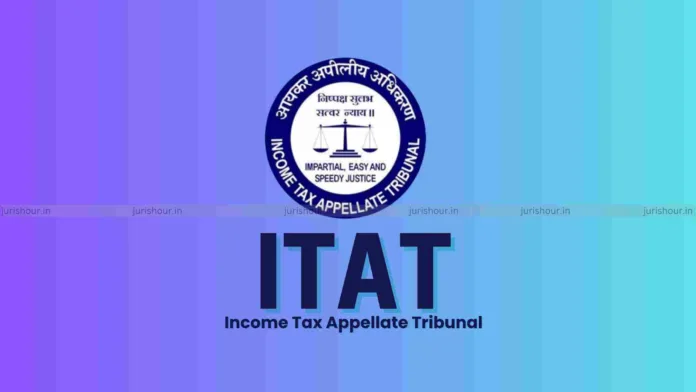The Income Tax Appellate Tribunal (ITAT), Pune Bench has set aside an order passed by the Commissioner of Income Tax (Appeals) [CIT(A)]/NFAC for failing to adjudicate legal grounds raised by the assessee in a reassessment case involving cash deposits and withdrawals exceeding Rs. 1.58 crore.
The bench of R. K. Panda (Vice President) and Vinay Bhamore (Judicial Member) has observed that CIT(A)/NFAC was duty bound to decide each and every ground separately by a speaking order, and specifically when legal grounds against the validity of notice and reassessment are raised, it was compulsory for Ld. CIT(A)/NFAC to decide the legal grounds raised before him. Since the matter was simply remanded back for reframing the assessment without adjudicating any of the grounds including the legal grounds, the order of CIT(A)/NFAC cannot be sustained and deserves to be set-aside.
The case arose after the Income Tax Department received information about substantial cash transactions in the bank accounts of a Kolhapur-based cashew trader who had not filed his return for Assessment Year (AY) 2018-19. Based on this, the Assessing Officer (AO) issued notices under sections 148A(b) and 148 of the Income Tax Act, eventually passing an ex-parte reassessment order under sections 147 r.w.s. 144/144B, determining a total income of ₹2,09,06,834. This included unexplained money under Section 69A and estimated business income.
Aggrieved, the assessee appealed before the CIT(A)/NFAC, challenging both the validity of the reassessment proceedings and the additions made. However, instead of adjudicating the grounds—including the legal challenge to the reassessment—the CIT(A) remitted the case back to the AO for a fresh assessment, citing powers under the newly inserted proviso to section 251(1)(a) (effective 1 October 2024), which allows set-aside orders in cases assessed under section 144.
Deepak Chintaman Gadgil, assessee’s counsel argued that the CIT(A) passed the order nearly eight months after the last written submission, violating CBDT Instructions (No. 20/2003 and F.No.279/MISC/53/2003-ITJ) requiring orders within 15 days of the last hearing. The appellate authority failed to decide legal grounds relating to the validity of the notices and reassessment, contrary to section 250(6), which mandates reasoned decisions on each ground.
The Tribunal agreed, observing that the CIT(A)/NFAC is statutorily bound to address each ground, particularly legal ones, before disposing of an appeal. Simply remanding the matter without such adjudication “violates the statutory mandate and principles of natural justice.”
The order of the CIT(A)/NFAC was set aside and the matter remanded back to the appellate authority to decide all grounds afresh, including legal objections, after granting the assessee reasonable opportunity of hearing.
Case Details
Case Title: Shamrao Gopal Benake Versus ITO
Case No.: ITA No.1036/PUN/2025
Date: 12.08.2025
Counsel For Appellant: Deepak Chintaman Gadgil
Counsel For Respondent: Akhilesh Srivastva
Read More: Customs Dept. Can’t Deny MEIS Benefits Without DGFT Cancellation: CESTAT

